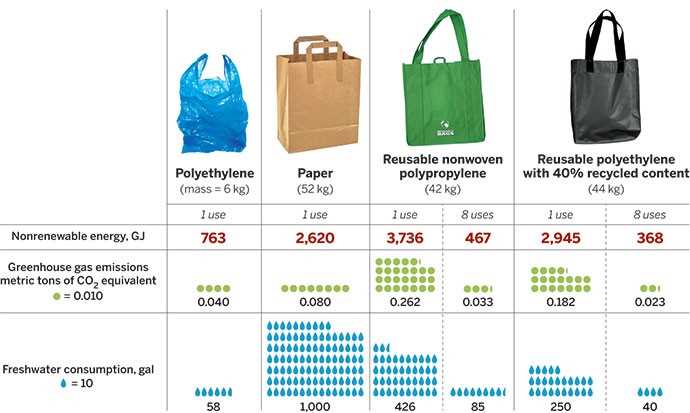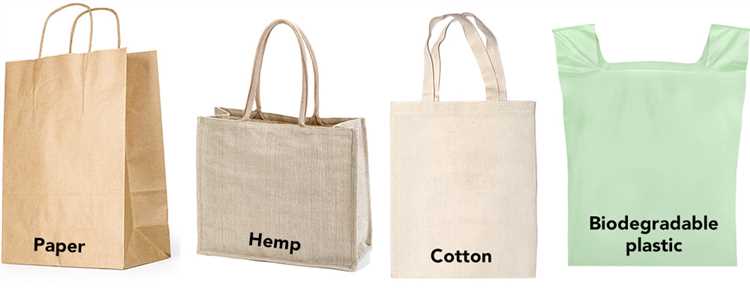
Eco bags, also known as reusable bags or tote bags, have become increasingly popular in recent years due to their positive impact on the environment. These bags are made from materials such as cotton, canvas, or jute, which are biodegradable and can be easily recycled. In contrast, plastic bags are typically made from non-renewable resources such as petroleum, and they take hundreds of years to decompose.
One of the main benefits of using eco bags is their eco-friendly nature. By using these bags instead of disposable plastic ones, individuals can greatly reduce their carbon footprint. The production and disposal of plastic bags contribute to pollution, deforestation, and climate change. By opting for eco bags, we can help to conserve natural resources and protect the environment for future generations.
In addition to their environmental benefits, eco bags also offer practical advantages. They are sturdier and more durable than plastic bags, allowing users to carry heavier items without the worry of the bag breaking. Furthermore, many eco bags have a larger capacity, providing more space for groceries or other items. Some eco bags also come with convenient features such as pockets or compartments for storing smaller items.
Overall, eco bags are a sustainable and environmentally-friendly alternative to plastic bags. By using these bags, we can reduce waste, conserve resources, and protect our planet. While the initial cost of eco bags may be higher than that of plastic bags, the long-term benefits far outweigh the investment. It’s time to make the switch and embrace eco bags as a responsible and conscious choice.
- Eco Bags: Environmentally Friendly and Sustainable Alternatives
- Benefits of Eco Bags
- Tips for Using Eco Bags
- Plastic Bags: Harmful Effects on the Environment and Wildlife
- Eco Bags: Durability and Longevity for Repeat Use
- Reusable Bags for Various Needs
- Easy to Clean and Maintain
- Plastic Bags: Single-Use and Short Lifespan
- Single-Use Convenience, Long-Term Consequences
- Environmental Impact
- Eco Bags: Versatility and Variety of Options
- Versatile Uses
- Types of Eco Bags
- Plastic Bags: Non-Biodegradable and Contribution to Landfill Waste
- Q&A
- Are eco bags more expensive than plastic bags?
- What are the environmental benefits of using eco bags?
- How durable are eco bags compared to plastic bags?
- Do eco bags contribute to reducing plastic pollution in the oceans?
Eco Bags: Environmentally Friendly and Sustainable Alternatives
Eco bags, also known as reusable or cloth bags, are a popular environmentally friendly alternative to plastic bags. They are designed to be used multiple times, reducing the need for single-use plastic bags that often end up in landfills or as litter in the environment.
Benefits of Eco Bags

1. Reduced Waste: One of the primary advantages of eco bags is that they significantly reduce waste. While plastic bags are used for a short time and then thrown away, eco bags can be used repeatedly, saving hundreds or even thousands of plastic bags from entering the waste stream.
2. Environmentally Friendly Materials: Eco bags are typically made from natural and sustainable materials such as cotton, jute, or hemp. These materials are biodegradable and have a lower carbon footprint compared to plastic bags, which are made from nonrenewable resources like oil.
3. Versatility: Eco bags come in various shapes and sizes, making them suitable for a wide range of uses. They can be used for grocery shopping, carrying books, or as everyday tote bags. Some eco bags even have specialized compartments or designs to accommodate specific items like bottles or produce.
Tips for Using Eco Bags
- Keep a few eco bags in your car or backpack, so you always have one on hand when you need it.
- Consider purchasing eco bags that fold up compactly, so you can easily carry them with you wherever you go.
- Wash your eco bags regularly to keep them clean and hygienic.
- Reuse your old t-shirts or other fabric to create homemade eco bags to further reduce waste.
In conclusion, eco bags offer a sustainable and environmentally friendly alternative to plastic bags. By using eco bags, individuals can significantly reduce waste, help protect the environment, and contribute to a cleaner and greener future.
Plastic Bags: Harmful Effects on the Environment and Wildlife

Plastic bags are a widely used packaging material, but their convenience comes at a severe cost to the environment and wildlife. These bags are made from non-renewable resources such as petroleum, natural gas, and other chemicals. The production of plastic bags contributes to air and water pollution, depletes natural resources, and increases greenhouse gas emissions.
One of the most significant environmental concerns related to plastic bags is their long decomposition time. It can take hundreds of years for a single plastic bag to break down in the environment. This means that the bags linger in landfills, oceans, and other natural habitats for an extended period, causing pollution and harm to wildlife.
| Environmental Impact | Wildlife Impact |
|---|---|
| Plastic bags contribute to the pollution of water bodies such as rivers, lakes, and oceans. When exposed to sunlight and water, the bags break down into smaller plastic particles known as microplastics, which contaminate water sources and harm aquatic life. | Marine animals, such as sea turtles and seabirds, often mistake plastic bags for food and ingest them. This can lead to internal injuries, blockages in their digestive systems, and even death. Additionally, animals can get entangled in plastic bags, leading to suffocation or the loss of limbs. |
| The production of plastic bags requires the extraction of fossil fuels, contributing to the depletion of these non-renewable resources. This extraction process damages ecosystems and disrupts wildlife habitats. | Plastic bags can also have indirect impacts on wildlife. By polluting their habitats and degrading ecosystems, plastic bags can disrupt the food chain and disturb the balance of natural ecosystems, ultimately impacting the survival of various species. |
| Due to their lightweight nature, plastic bags are easily carried by the wind, leading to urban and rural littering. This litter not only negatively impacts the aesthetic appeal of communities but also poses a hazard to wildlife that may become entangled or ingest the bags. | Wildlife, such as
Eco Bags: Durability and Longevity for Repeat UseWhen it comes to choosing between eco bags and plastic bags, one of the key advantages of eco bags is their durability and longevity for repeat use. Unlike flimsy plastic bags that often tear or break after just a few uses, eco bags are made from sturdy materials such as canvas, nylon, or recycled polyester. This means that they can withstand heavy loads and rough handling, making them perfect for carrying groceries, books, or other everyday items. Not only are eco bags designed to be durable, but they are also built to last. Unlike single-use plastic bags that are discarded after a single trip to the store, eco bags are meant to be used over and over again. This not only reduces the amount of waste produced but also helps to conserve resources. By choosing eco bags, consumers can contribute to a more sustainable future by reducing their overall environmental footprint. Reusable Bags for Various NeedsEco bags come in a variety of shapes and sizes to suit different needs. From small tote bags that are perfect for quick trips to the store, to large spacious bags that can accommodate bulky items, there is an eco bag for every occasion. Some eco bags even have additional features such as inner compartments or zippered pockets, making them versatile and practical. Easy to Clean and MaintainMaintaining eco bags is also a breeze. Most eco bags can be easily cleaned by wiping them down with a damp cloth or hand-washing them with mild soap and water. They can also be machine washed in some cases. This makes it easy to keep eco bags clean and hygienic for repeated use. In conclusion, the durability and longevity of eco bags make them an excellent alternative to plastic bags. By opting for eco bags, individuals can reduce their impact on the environment while enjoying a reliable and long-lasting solution for their daily carrying needs. Plastic Bags: Single-Use and Short LifespanPlastic bags have become a ubiquitous part of our everyday lives. From carrying groceries to packaging retail purchases, plastic bags offer convenience and ease. However, their benefits come at a significant cost to the environment. Single-Use Convenience, Long-Term ConsequencesOne of the main issues with plastic bags is their single-use nature. Designed to be used once and then discarded, they often end up in landfills or polluting our oceans. These bags are not biodegradable and take hundreds of years to decompose, leaving a lasting impact on the planet. The short lifespan of plastic bags is also a concern. Because they are not built to last, they can tear easily and become unusable after just a few uses. This means that even if they are initially re-used, the lifespan of a plastic bag is significantly shorter than that of an eco bag. Environmental ImpactThe production of plastic bags requires significant amounts of fossil fuels, contributing to greenhouse gas emissions and climate change. Additionally, the extraction of these fossil fuels and the manufacturing processes involved in making the bags also have negative environmental impacts. Plastic bags are often mistakenly ingested by wildlife, causing harm and even death. The lightweight nature of these bags means that they can easily fly away and end up in oceans, where they pose a threat to marine life. Furthermore, plastic bags can become entangled in animals or microorganisms, disrupting ecosystems and leading to long-term ecological damage. In conclusion, plastic bags may offer convenience in the short term, but their single-use nature and short lifespan have significant environmental consequences. The production, disposal, and impact on wildlife make them a less sustainable choice compared to eco bags. Eco Bags: Versatility and Variety of OptionsEco bags, also known as reusable bags or cloth bags, are an eco-friendly alternative to plastic bags. They are designed to be durable and long-lasting, making them suitable for various purposes. Versatile UsesEco bags can be used for a wide range of activities, thanks to their versatility. They are great for grocery shopping, as they have the capacity to hold heavy items, such as canned goods or fresh produce. They are also ideal for carrying books, clothes, or other personal belongings. Furthermore, eco bags are popular for picnics or beach trips, as they can carry food, beverages, or beach essentials. Many eco bags are even insulated, helping to keep food and drinks cool during hot summer days. Types of Eco BagsThere is a wide variety of eco bags available to suit different needs and preferences. Some popular options include:
These are just a few examples of the wide range of eco bags available in the market. With so many options to choose from, you can find an eco bag that suits your specific needs and style. In conclusion, eco bags offer versatility and a variety of options, making them a practical and eco-friendly choice. By switching to eco bags, you can help reduce the use of single-use plastic bags and contribute to a cleaner and greener environment. Plastic Bags: Non-Biodegradable and Contribution to Landfill WastePlastic bags have become an integral part of our lives due to their convenience and affordability. However, their widespread use has led to severe environmental consequences. One of the main issues with plastic bags is that they are non-biodegradable. Unlike eco bags, which are made from natural materials like cotton or jute, plastic bags are made from petroleum-based materials such as polyethylene. This means that they do not break down naturally over time and can persist in the environment for hundreds of years. When plastic bags end up in landfills, they contribute to a significant amount of waste. According to estimates, Americans alone use billions of plastic bags each year, and only a fraction of them are recycled. The rest end up in the landfill, where they take up valuable space and do not decompose. The accumulation of plastic bags in landfills has several negative consequences. Firstly, it exacerbates the problem of overcrowded landfills, which are already a major concern in many countries. The space occupied by plastic bags could otherwise be used for disposing of other waste or for alternative purposes. Additionally, plastic bags in landfills can have adverse effects on surrounding ecosystems. They can release harmful toxins into the soil and water, which can contaminate natural resources and affect the health of plants, animals, and even humans. Wildlife, in particular, is at risk as they can mistake plastic bags for food, leading to ingestion and entanglement. In conclusion, plastic bags are a significant contributor to landfill waste due to their non-biodegradable nature. The environmental impact of plastic bags extends beyond their disposal, affecting ecosystems and wildlife. As such, it is crucial to reduce our reliance on plastic bags and opt for more sustainable alternatives like eco bags. Q&AAre eco bags more expensive than plastic bags?No, eco bags are not necessarily more expensive than plastic bags. In fact, many retailers offer eco bags at a very affordable price or even for free. While some eco bags may be more expensive than certain types of plastic bags, they are generally considered a more cost-effective option in the long run. What are the environmental benefits of using eco bags?There are several environmental benefits of using eco bags. Firstly, eco bags are reusable, which means they can replace hundreds or even thousands of single-use plastic bags. This reduces the amount of waste sent to landfills and the overall demand for plastic bag production. Additionally, eco bags are often made from sustainable materials such as organic cotton or recycled plastic, further reducing their environmental impact. How durable are eco bags compared to plastic bags?Eco bags are generally more durable than plastic bags. While plastic bags are prone to tearing and breaking, eco bags are designed to withstand heavier loads and frequent use. They are often made from stronger materials such as canvas or nylon, making them a more reliable option for carrying groceries or other items. Additionally, many eco bags have reinforced handles and stitching to increase their durability. Do eco bags contribute to reducing plastic pollution in the oceans?Yes, eco bags play a significant role in reducing plastic pollution in the oceans. Plastic bags are one of the most common types of marine debris, and they pose a serious threat to marine life. By using eco bags instead of plastic bags, individuals can help prevent plastic bags from ending up in the ocean and harming marine ecosystems. The reusable nature of eco bags also means less plastic waste overall, further reducing the potential impact on the oceans. |